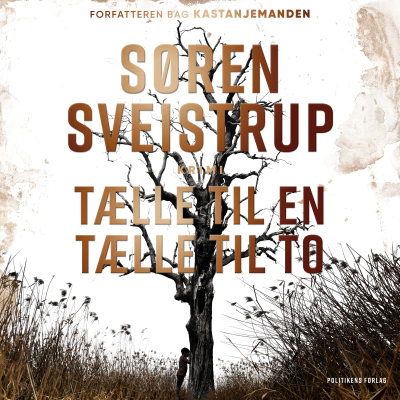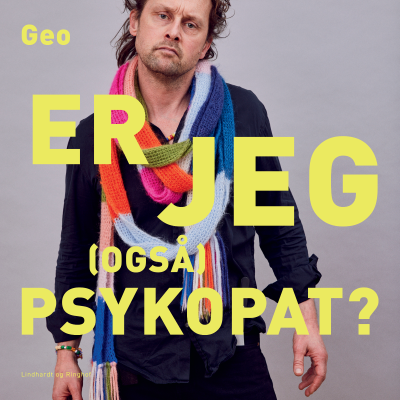Fluidity
Podcast by Matt Arnold
After the collapse of the 20th-century systematic mode of social organization, how can we move from our internet-enabled atomized mode, toward a fluid mode? We take problems of meaning-making, typically considered spiritual, and turn them into practical problems, which are more tractable. "Meaningness" begins with this episode: https://fluidity.libsyn.com/an-appetizer-purpose "Meaningness And Time" begins with this episode: https://fluidity.libsyn.com/meaningness-and-time-how-meaning-fell-apart 'In The Cells Of The Eggplant" begins with this episode: https://fluidity.libsyn.com/intro-to-metarationality You can support the podcast and get episodes a week early, by supporting the Patreon: https://www.patreon.com/m/fluidityaudiobooks If you like the show, consider buying me a coffee: https://www.buymeacoffee.com/mattarnold This is a nonfiction audiobook narrated by Matt Arnold with the permission of the author, David Chapman. Full text at: https://meaningness.com Please email me at fluidity@hey.com.
Start 7 days free trial
99,00 kr. / month after trial.Cancel anytime.
All episodes
140 episodesThis concludes "Gradient Dissent", the companion document to "Better Without AI". Thank you so much for listening! You can support the podcast and get episodes a week early, by supporting the Patreon: https://www.patreon.com/m/fluidityaudiobooks If you like the show, consider buying me a coffee: https://www.buymeacoffee.com/mattarnold Original music by Kevin MacLeod. This podcast is under a Creative Commons Attribution Non-Commercial International 4.0 License.
Current text generators, such as ChatGPT, are highly unreliable, difficult to use effectively, unable to do many things we might want them to, and extremely expensive to develop and run. These defects are inherent in their underlying technology. Quite different methods could plausibly remedy all these defects. Would that be good, or bad? https://betterwithout.ai/better-text-generators John McCarthy’s paper “Programs with common sense”: http://www-formal.stanford.edu/jmc/mcc59/mcc59.html Harry Frankfurt, "On Bullshit": https://www.amazon.com/dp/B001EQ4OJW/?tag=meaningness-20 Petroni et al., “Language Models as Knowledge Bases?": https://aclanthology.org/D19-1250/ Gwern Branwen, “The Scaling Hypothesis”: gwern.net/scaling-hypothesis Rich Sutton’s “Bitter Lesson”: www.incompleteideas.net/IncIdeas/BitterLesson.html Guu et al.’s “Retrieval augmented language model pre-training” (REALM): http://proceedings.mlr.press/v119/guu20a/guu20a.pdf Borgeaud et al.’s “Improving language models by retrieving from trillions of tokens” (RETRO): https://arxiv.org/pdf/2112.04426.pdf Izacard et al., “Few-shot Learning with Retrieval Augmented Language Models”: https://arxiv.org/pdf/2208.03299.pdf Chirag Shah and Emily M. Bender, “Situating Search”: https://dl.acm.org/doi/10.1145/3498366.3505816 David Chapman's original version of the proposal he puts forth in this episode: twitter.com/Meaningness/status/1576195630891819008 Lan et al. “Copy Is All You Need”: https://arxiv.org/abs/2307.06962 Mitchell A. Gordon’s “RETRO Is Blazingly Fast”: https://mitchgordon.me/ml/2022/07/01/retro-is-blazing.html Min et al.’s “Silo Language Models”: https://arxiv.org/pdf/2308.04430.pdf W. Daniel Hillis, The Connection Machine, 1986: https://www.amazon.com/dp/0262081571/?tag=meaningness-20 Ouyang et al., “Training language models to follow instructions with human feedback”: https://arxiv.org/abs/2203.02155 Ronen Eldan and Yuanzhi Li, “TinyStories: How Small Can Language Models Be and Still Speak Coherent English?”: https://arxiv.org/pdf/2305.07759.pdf Li et al., “Textbooks Are All You Need II: phi-1.5 technical report”: https://arxiv.org/abs/2309.05463 Henderson et al., “Foundation Models and Fair Use”: https://arxiv.org/abs/2303.15715 Authors Guild v. Google: https://en.wikipedia.org/wiki/Authors_Guild%2C_Inc._v._Google%2C_Inc. Abhishek Nagaraj and Imke Reimers, “Digitization and the Market for Physical Works: Evidence from the Google Books Project”: https://www.aeaweb.org/articles?id=10.1257/pol.20210702 [https://www.aeaweb.org/articles?id=10.1257/pol.20210702] You can support the podcast and get episodes a week early, by supporting the Patreon: https://www.patreon.com/m/fluidityaudiobooks If you like the show, consider buying me a coffee: https://www.buymeacoffee.com/mattarnold Original music by Kevin MacLeod. This podcast is under a Creative Commons Attribution Non-Commercial International 4.0 License.
Analysis of image classifiers demonstrates that it is possible to understand backprop networks at the task-relevant run-time algorithmic level. In these systems, at least, networks gain their power from deploying massive parallelism to check for the presence of a vast number of simple, shallow patterns. https://betterwithout.ai/images-surface-features This episode has a lot of links: David Chapman's earliest public mention, in February 2016, of image classifiers probably using color and texture in ways that "cheat": twitter.com/Meaningness/status/698688687341572096 Jordana Cepelewicz’s “Where we see shapes, AI sees textures,” Quanta Magazine, July 1, 2019: https://www.quantamagazine.org/where-we-see-shapes-ai-sees-textures-20190701/ “Suddenly, a leopard print sofa appears”, May 2015: https://web.archive.org/web/20150622084852/http://rocknrollnerd.github.io/ml/2015/05/27/leopard-sofa.html “Understanding How Image Quality Affects Deep Neural Networks” April 2016: https://arxiv.org/abs/1604.04004 Goodfellow et al., “Explaining and Harnessing Adversarial Examples,” December 2014: https://arxiv.org/abs/1412.6572 “Universal adversarial perturbations,” October 2016: https://arxiv.org/pdf/1610.08401v1.pdf “Exploring the Landscape of Spatial Robustness,” December 2017: https://arxiv.org/abs/1712.02779 “Overinterpretation reveals image classification model pathologies,” NeurIPS 2021: https://proceedings.neurips.cc/paper/2021/file/8217bb4e7fa0541e0f5e04fea764ab91-Paper.pdf “Approximating CNNs with Bag-of-Local-Features Models Works Surprisingly Well on ImageNet,” ICLR 2019: https://openreview.net/forum?id=SkfMWhAqYQ Baker et al.’s “Deep convolutional networks do not classify based on global object shape,” PLOS Computational Biology, 2018: https://journals.plos.org/ploscompbiol/article?id=10.1371/journal.pcbi.1006613 François Chollet's Twitter threads about AI producing images of horses with extra legs: twitter.com/fchollet/status/1573836241875120128 and twitter.com/fchollet/status/1573843774803161090 “Zoom In: An Introduction to Circuits,” 2020: https://distill.pub/2020/circuits/zoom-in/ Geirhos et al., “ImageNet-Trained CNNs Are Biased Towards Texture; Increasing Shape Bias Improves Accuracy and Robustness,” ICLR 2019: https://openreview.net/forum?id=Bygh9j09KX Dehghani et al., “Scaling Vision Transformers to 22 Billion Parameters,” 2023: https://arxiv.org/abs/2302.05442 Hasson et al., “Direct Fit to Nature: An Evolutionary Perspective on Biological and Artificial Neural Networks,” February 2020: https://www.gwern.net/docs/ai/scaling/2020-hasson.pdf [https://www.gwern.net/docs/ai/scaling/2020-hasson.pdf] You can support the podcast and get episodes a week early, by supporting the Patreon: https://www.patreon.com/m/fluidityaudiobooks [https://www.patreon.com/m/fluidityaudiobooks] If you like the show, consider buying me a coffee: https://www.buymeacoffee.com/mattarnold [https://www.buymeacoffee.com/mattarnold] Original music by Kevin MacLeod. This podcast is under a Creative Commons Attribution Non-Commercial International 4.0 License.
Current AI practice is not engineering, even when it aims for practical applications, because it is not based on scientific understanding. Enforcing engineering norms on the field could lead to considerably safer systems. https://betterwithout.ai/AI-as-engineering [https://betterwithout.ai/AI-as-engineering] This episode has a lot of links! Here they are. Michael Nielsen’s “The role of ‘explanation’ in AI”. https://michaelnotebook.com/ongoing/sporadica.html#role_of_explanation_in_AI Subbarao Kambhampati’s “Changing the Nature of AI Research”. https://dl.acm.org/doi/pdf/10.1145/3546954 Chris Olah and his collaborators: “Thread: Circuits”. distill.pub/2020/circuits/ “An Overview of Early Vision in InceptionV1”. distill.pub/2020/circuits/early-vision/ Dai et al., “Knowledge Neurons in Pretrained Transformers”. https://arxiv.org/pdf/2104.08696.pdf Meng et al.: “Locating and Editing Factual Associations in GPT.” rome.baulab.info “Mass-Editing Memory in a Transformer,” https://arxiv.org/pdf/2210.07229.pdf François Chollet on image generators putting the wrong number of legs on horses: twitter.com/fchollet/status/1573879858203340800 Neel Nanda’s “Longlist of Theories of Impact for Interpretability”, https://www.lesswrong.com/posts/uK6sQCNMw8WKzJeCQ/a-longlist-of-theories-of-impact-for-interpretability Zachary C. Lipton’s “The Mythos of Model Interpretability”. https://arxiv.org/abs/1606.03490 Meng et al., “Locating and Editing Factual Associations in GPT”. https://arxiv.org/pdf/2202.05262.pdf Belrose et al., “Eliciting Latent Predictions from Transformers with the Tuned Lens”. https://arxiv.org/abs/2303.08112 “Progress measures for grokking via mechanistic interpretability”. https://arxiv.org/abs/2301.05217 Conmy et al., “Towards Automated Circuit Discovery for Mechanistic Interpretability”. https://arxiv.org/abs/2304.14997 Elhage et al., “Softmax Linear Units,” transformer-circuits.pub/2022/solu/index.html Filan et al., “Clusterability in Neural Networks,” https://arxiv.org/pdf/2103.03386.pdf Cammarata et al., “Curve circuits,” distill.pub/2020/circuits/curve-circuits/ You can support the podcast and get episodes a week early, by supporting the Patreon: https://www.patreon.com/m/fluidityaudiobooks If you like the show, consider buying me a coffee: https://www.buymeacoffee.com/mattarnold Original music by Kevin MacLeod. This podcast is under a Creative Commons Attribution Non-Commercial International 4.0 License.
Few AI experiments constitute meaningful tests of hypotheses. As a branch of machine learning research, AI science has concentrated on black box investigation of training time phenomena. The best of this work is has been scientifically excellent. However, the hypotheses tested are mainly irrelevant to user and societal concerns. https://betterwithout.ai/AI-as-science This chapter references Chapman's essay, "How should we evaluate progress in AI?" https://metarationality.com/artificial-intelligence-progress "Troubling Trends in Machine Learning Scholarship", Zachary C. Lipton and Jacob Steinhardt: https://arxiv.org/abs/1807.03341 You can support the podcast and get episodes a week early, by supporting the Patreon: https://www.patreon.com/m/fluidityaudiobooks If you like the show, consider buying me a coffee: https://www.buymeacoffee.com/mattarnold Original music by Kevin MacLeod. This podcast is under a Creative Commons Attribution Non-Commercial International 4.0 License.
Start 7 days free trial
99,00 kr. / month after trial.Cancel anytime.
Exclusive podcasts
Ad free
Non-Podimo podcasts
Audiobooks
20 hours / month



















